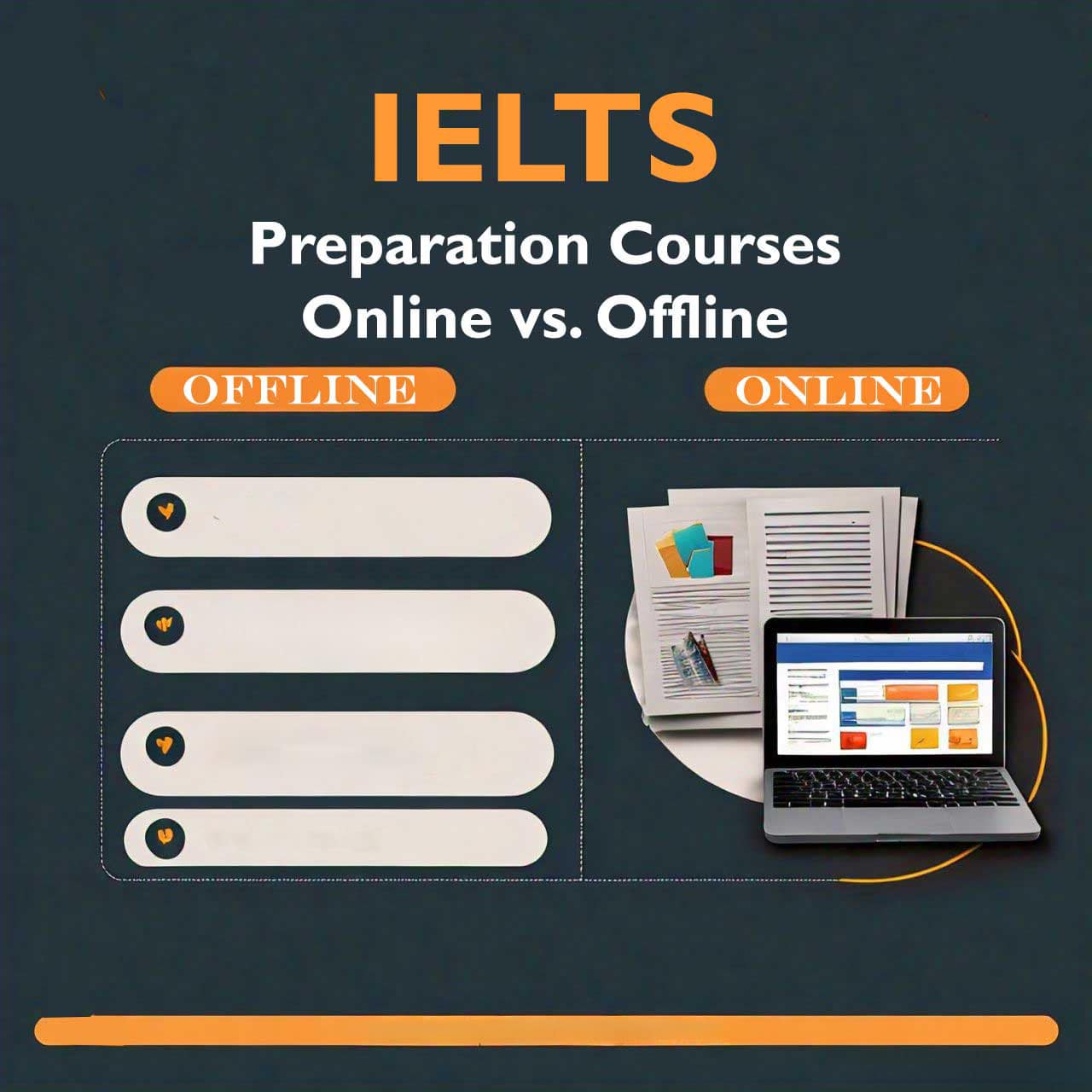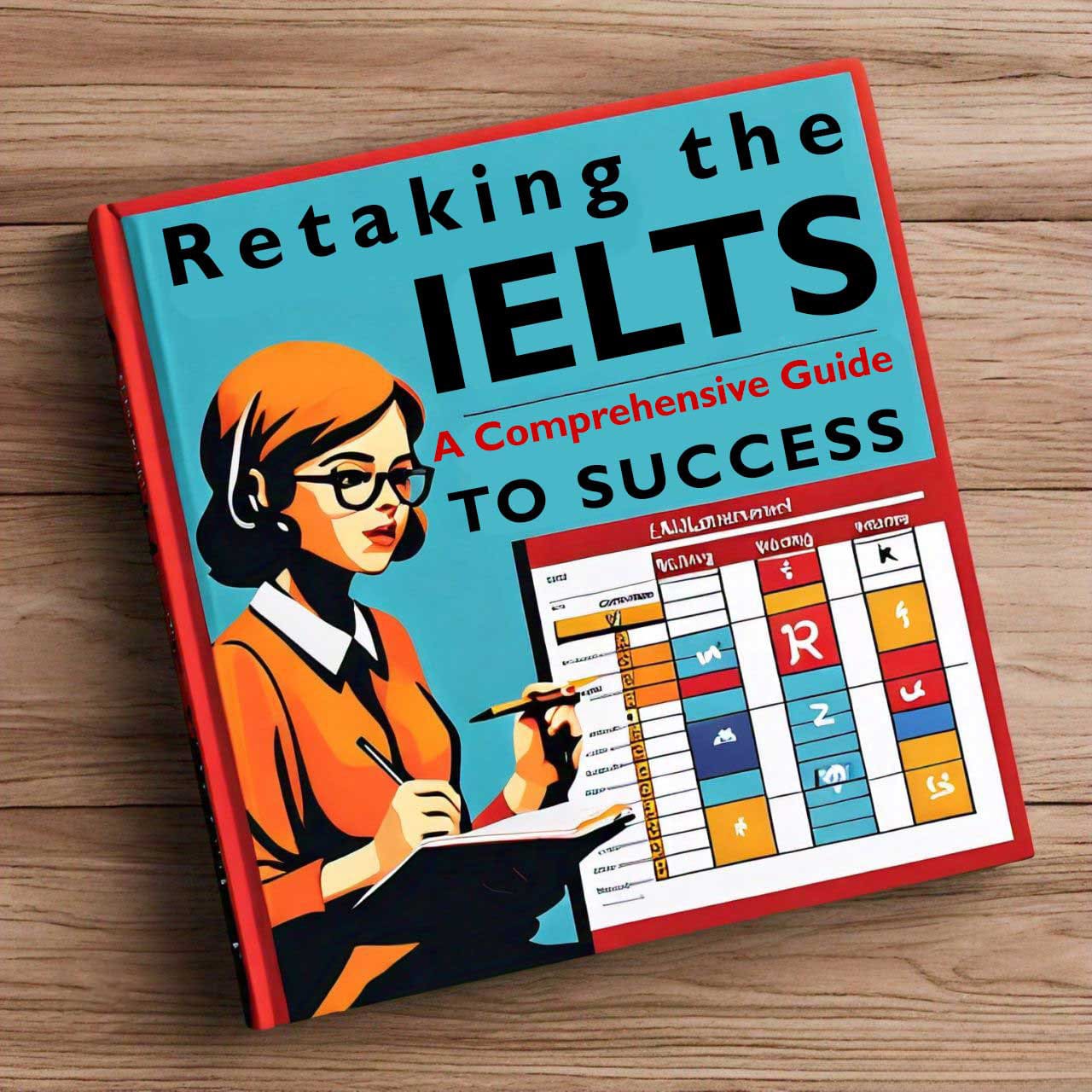Preparing for the IELTS (International English Language Testing System) exam can be a challenging but rewarding experience. With the growing popularity of both online and offline preparation courses, choosing the right format for your needs is essential. This blog post will explore the pros and cons of online and offline IELTS preparation courses to help you make an informed decision.
Table of Contents
Online IELTS Preparation Courses
Pros:
1. Flexibility and Convenience: Online courses offer unmatched flexibility. You can access course materials and lessons from anywhere, at any time. This is ideal for busy individuals who need to balance their studies with work or other commitments.
2. Wide Range of Resources: Online courses often provide a vast array of resources, including video tutorials, interactive quizzes, practice tests, and downloadable materials. These resources can cater to different learning styles and preferences.
3. Self-Paced Learning: Many online courses allow you to learn at your own pace. This means you can spend more time on challenging areas and move quickly through topics you find easier.
4. Access to Expert Instructors: Reputable online courses often feature experienced instructors who can provide valuable insights and feedback. Some platforms also offer live classes and Q&A sessions to interact directly with tutors.
5. Cost-Effective: Online courses are generally more affordable than traditional offline courses. There are also free resources and courses available, which can be a great starting point for budget-conscious learners.
Cons:
1. Limited Personal Interaction: One of the main drawbacks of online courses is the lack of face-to-face interaction. This can make it harder to build a rapport with instructors and fellow students.
2. Self-Discipline Required: Online learning requires a high level of self-discipline and motivation. Without a structured schedule, some students may struggle to stay on track and complete their studies.
3. Technical Issues: Access to a reliable internet connection and appropriate devices is crucial for online learning. Technical problems can disrupt your study schedule and cause frustration.
Offline IELTS Preparation Courses
Pros:
1. Personal Interaction: Offline courses provide direct interaction with instructors and classmates. This can enhance your learning experience through immediate feedback, discussion, and collaborative activities.
2. Structured Learning Environment: Traditional classroom settings offer a structured environment with a fixed schedule. This can be beneficial for students who thrive on routine and discipline.
3. Access to Facilities: Offline courses often provide access to facilities such as libraries, study rooms, and computer labs. These resources can support your preparation and provide a conducive learning environment.
4. Motivation and Accountability: Being part of a physical classroom can increase your motivation and accountability. Regular attendance and participation in class activities can help you stay committed to your study goals.
Cons:
1. Inflexibility: Offline courses usually have fixed schedules and locations. This can be inconvenient for individuals with busy or unpredictable lifestyles.
2. Higher Costs: Traditional classroom courses tend to be more expensive than online options. Additional costs for commuting, materials, and sometimes accommodation can add up.
3. Limited Resource Variety: While offline courses provide valuable in-person instruction, they may not offer the same extensive range of multimedia resources and practice materials available online.
4. Travel and Commute: Commuting to a physical location for classes can be time-consuming and tiring, especially for those who live far from the course venue.
Making the Right Choice
When deciding between online and offline IELTS preparation courses, consider the following factors:
1. Learning Style: Reflect on your learning preferences. Do you thrive in a structured classroom environment with direct interaction, or do you prefer the flexibility and independence of online learning?
2. Schedule and Lifestyle: Assess your schedule and lifestyle. If you have a busy or irregular routine, an online course might offer the flexibility you need. If you can commit to a regular schedule, an offline course might be more suitable.
3. Budget: Consider your budget. Online courses are generally more affordable and offer a range of options, including free resources. Offline courses may require a larger financial investment.
4. Access to Resources: Evaluate your access to necessary resources, such as a reliable internet connection and suitable study environment for online courses, or the convenience of commuting to an offline course location.
5. Goals and Motivation: Think about your personal goals and level of self-motivation. If you need external motivation and accountability, an offline course might be better. If you are self-disciplined and motivated, an online course could be a great fit.
Conclusion
Both online and offline IELTS preparation courses have their advantages and disadvantages. Your choice should depend on your individual learning style, schedule, budget, and personal preferences. By carefully considering these factors, you can select the preparation course that best suits your needs and helps you achieve your desired IELTS score. Whichever option you choose, dedication and consistent practice will be key to your success. Good luck!



